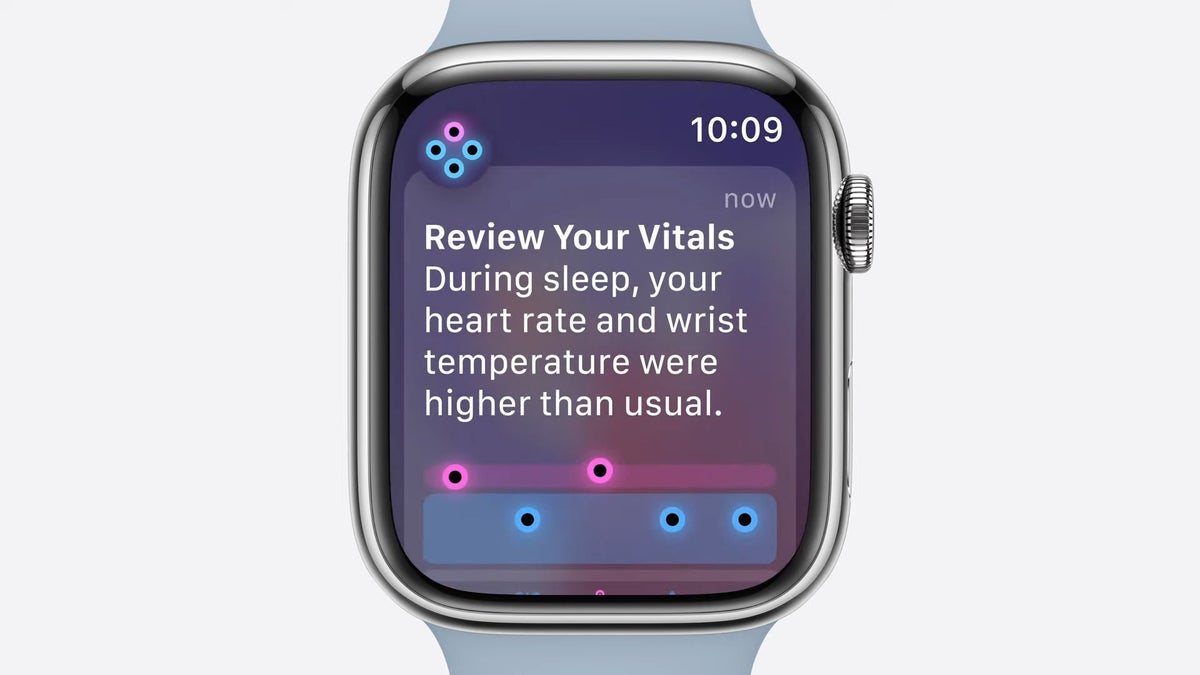The Apple Watch Vitals app now lets you track metrics for a good night’s rest, such as your pulse, temperature, respiratory rate, sleep cycle and duration, as well as blood oxygen, and put them into historical context.
When watchOS 11 is running, the Vitals app will display those health and fitness criteria in an easily noticeable and digestible manner, and will show how they fared over a preset period like last week.
When your overnight or weekly sleep metrics are out of your typical range, the Vitals app will issue a warning, and try to offer an explanation based on sensor and AI input. For example, a restless sleep may have been due to a late night out and alcohol consumption, or a change in elevation, or even an illness.
The Vitals app on the Apple Watch will try to tie everything together and notify about any outliers to the way your, well, vitals, progress and behave over time. To do this, Apple is leveraging its groundbreaking heart study participation that allowed it to develop its second to none ECG function and get FDA approval.
“Apple’s health features are grounded in science and developed with input from clinical experts,” reminds the team from Cupertino. “To inform out-of-range classifications and notifications, Vitals uses an algorithm developed using real-world data from the Apple Heart and Movement Study, research that aims to advance the understanding of heart health and physical activity,” it continues, lending further credence to the usefulness of the new Vitals app.
